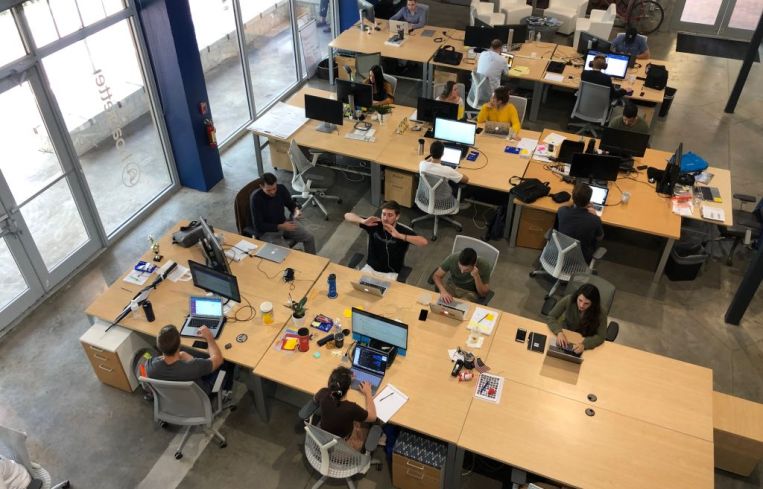Majority of Startups Consider Downsizing Offices, Survey Finds
By Nicholas Rizzi May 26, 2020 1:14 pm
reprints
The majority of startups are considering shrinking their office footprint after seeing the success of working from home during the coronavirus pandemic, a new survey found.
A survey of more than 500 founders of venture-backed companies showed that 66 percent of CEOs are looking into downsizing or limiting their office altogether while 71 percent plan to let their employees still work from home even after their offices reopen, according to the study by San Francisco-based leadership consulting firm The Kung Group.
The founders who will extend their work from home policies after the coronavirus pandemic said that an average will allow 70 percent of their staff to be remote.
The study also found that 60 percent of the founders showed no impact on productivity since emergency measures to slow the spread of the virus forced offices around the country to close while 16 percent saw an increase in productivity.
Even if offices were allowed to open tomorrow, 65 percent of the participants said they wouldn’t return immediately and the majority expect to return by the end of the third quarter of 2020, the survey found.
The coronavirus pandemic created a large-scale work from home experiment and has major companies looking to increase remote work options for employees and reconsidering their office footprints.
Tech giants Google and Facebook told its employees to plan to work remotely until 2020 while Twitter will allow its 5,000 workers to do so permanently. (Despite this, Facebook is still about to sign a 700,000 square foot lease at Vornado Realty Trust’s Farley Post Office site, as Commercial Observer previously reported.)
MasterCard, which has about 20,000 workers globally, told its employees to work from home until they feel comfortable and the virus is under control and is looking to consolidate its offices. Morgan Stanley is also considering shrinking its office footprint after seeing the success of remote work.
“Clearly, we’ve figured out how to operate with much less real estate,” Morgan Stanley CEO James Gorman told Bloomberg. “Can I see a future where part of every week, certainly part of every month, a lot of our employees will be at home? Absolutely.”
And aside from shrinking their office footprints, more space could be left empty as many startups are not expected to survive the coronavirus pandemic.
A report from the Center for an Urban Future and Tech:NYC found that New York City could lose a “sizable portion” of its technology startups because the pandemic cut revenues, delayed product launches and canceled much-needed fundraising rounds.



